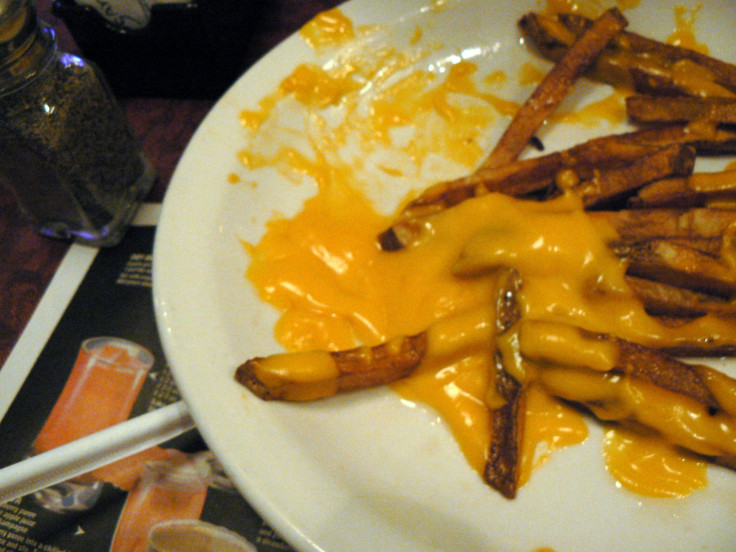A High-Fat Diet May Cause Brain Damage, Explaining Why Obese People Overeat And Crave Fatty Foods

Diets laden with fatty foods lead to unhealthy weight gain, but what fat does to the brain may be far worse. When researchers at Vanderbilt University’s Neuroscience Program in Substance Abuse wondered what drove people to overeat, they turned to the brains of obese mice for answers. The findings were published in the journal Heliyon and revealed that fatty foods can cause defects in the brain that lead to a cycle of fat cravings.
"We have always been struck by how much animals — and even people — will overconsume tasty high-fat foods, even though they might be technically feeling full," said the study’s co-author Dr. Aurelio Galli, a psychiatry professor at Vanderbilt University’s Medical Center, in a press release. "A high fat diet causes people to eat more, which ultimately impairs the ability of obese people to successfully control their caloric intake, lose weight, and maintain weight loss."
Researchers honed in on the pathways in the brain involved in overeating. People who overeat are typically affected by "hedonic eating," which occurs from a combination of the body’s metabolism, reward system, and pleasure senses like taste and smell. Inside an obese person’s body are defects in the nervous system that make it difficult for the body to balance how much energy it needs with how much energy it’s already used.
Throughout the world, this defective system may be present in the more than half a billion adults who are obese. Obesity rates have more than doubled since 1980, and according to the World Health Organization, at least 2.8 million people die each year as a result of being overweight or obese. The mechanisms behind why many obese people continue to overeat high-fat foods for pleasure may be explained by a novel signal discovery in the brain.
Eating food that’s high in fat or carbohydrates may reward the brain and engage pleasure senses, but it also changes the part of the brain that controls portions over time. People whose diets are regularly high in fat disrupt a specific signaling pathway that controls insulin and effectively cause the brain to overeat and seek high-fat foods in the future.
"This system can be hijacked by the very foods that it is designed to control," Galli said. “Our study shows that when specific signaling in these areas of the brain is disrupted, it leads to a vicious cycle of increasing, escalating high-fat diet intake that likely further cements changes in these brain areas."
The insulin pathway is called rapamycin complex 2 (mTORC2). It comprises a group of proteins in the brain that, when defective, override how the body maintains a healthy balance of calories and replaces it with a reward system that leads to overeating, and eventually, obesity.
In their study, researchers found that genetically altered mice that had their mTORC2 signal removed tended to eat high-fat foods excessively when compared to mice with a normal functioning mTORC2 signal. Those without the signal also had lower levels of dopamine, which researchers believe also led to a cycle of overeating — to tap into more dopamine. The team plans on seeing what happens when it reintroduces the mTORC2 signal into the mice’s brains, and whether or not it can reverse their urges to overeat and crave fat.
Source: Galli A, Niswender K, and Dadalko OI. Impaired mTORC2 signaling in catecholaminergic neurons exaggerates high fat diet-induced hyperphagia. Heliyon. 2015.
Published by Medicaldaily.com



























